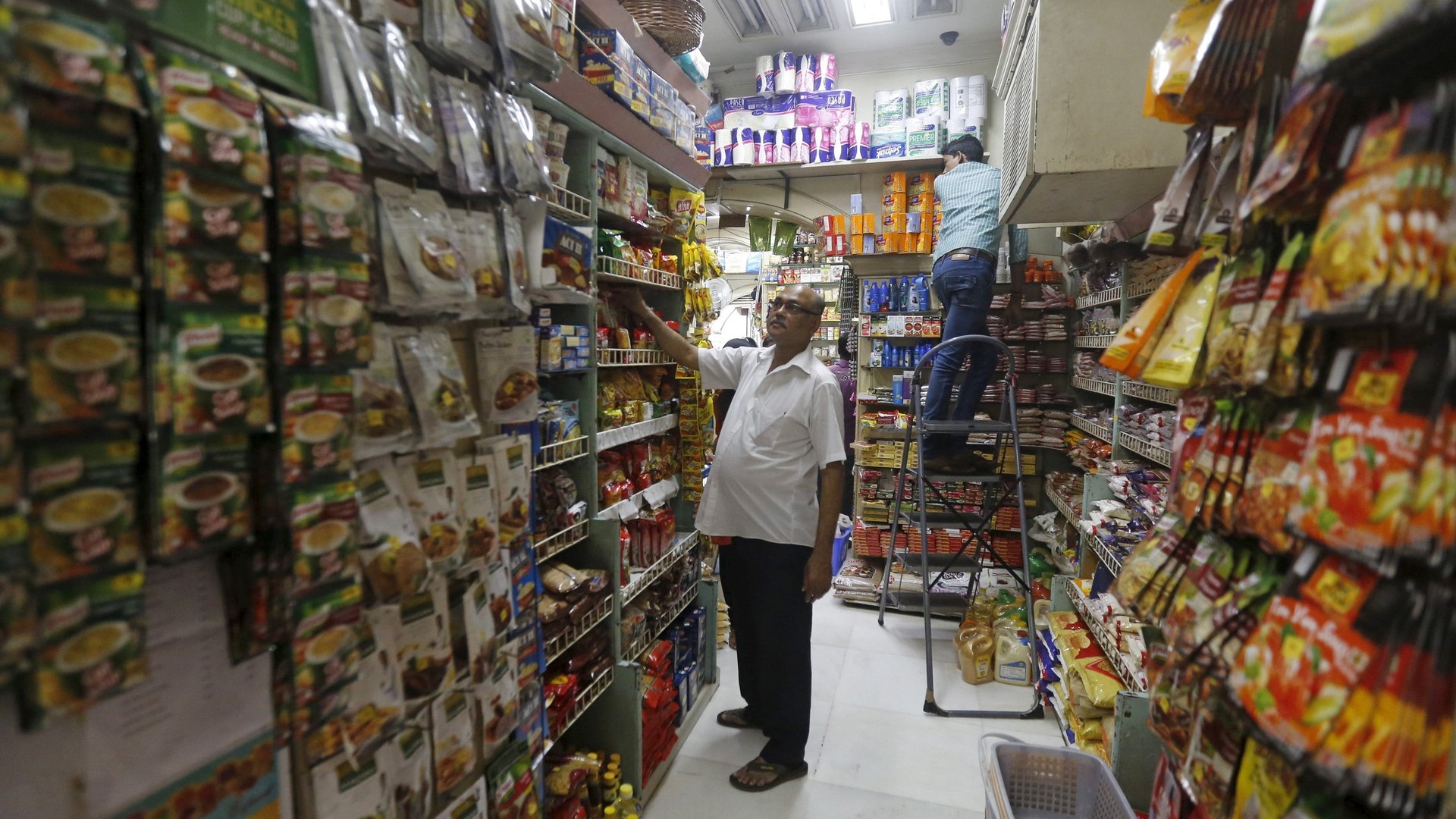India’s offline and online players are pooling their resources to survive the Covid-19 havoc
India’s consumer goods giants and legacy retailers are forging unique alliances with online aggregators to tide over the logistical hurdles created by the Covid-19 pandemic.


India’s consumer goods giants and legacy retailers are forging unique alliances with online aggregators to tide over the logistical hurdles created by the Covid-19 pandemic.
Mumbai-based Marico, for instance, has partnered with Swiggy and Zomato to ensure the delivery of its products, which include the popular Saffola brand of oats and oil. The items are listed on the food aggregators’ apps. Once an order is placed, a delivery executive picks it up from the nearest Marico distributor and delivers to the consumer.
“As India grapples with Covid-19, it is necessary to work with more online platforms to deliver essentials to buyers at their homes,” Sanjay Mishra, chief operating officer, India sales and Bangladesh business, Marico told Quartz.
The company’s rival ITC Ltd, meanwhile, has roped in quick-service restaurant brand Domino’s Pizza deliver its Aashirvaad brand of flour, salt, and spices, besides Savlon hand sanitisers, to customers.
The Kishore Biyani-led supermarket chain Big Bazaar is delivering essential goods, such as groceries, with the help of online bike aggregator Rapido and food delivery service Scootsy.
Rapido and Scootsy, along with Uber India, are also fulfilling the logistics needs of Kolkata-based Spencer’s Retail.
Everyone wins
The partnerships are a win-win for all.
“While the tie-ups will help retail and FMCG firms move their essential goods, shared mobility firms like Uber get to use their idle resources,” said N Chandramouli, CEO of Trust Research Advisory, a Mumbai-based market intelligence firm.
Following the nationwide lockdown, which began on March 25, Uber India’s vehicles have been lying unutilised. Assisting retail firms like Spencer’s with last-mile logistics helps create opportunities for its driver-partners. Uber India says it is providing these services at zero commission. That is, the entire earnings go to the drivers.
For the food aggregators, whose business has fallen due to the closure of malls and restaurants following the pandemic, the new clients “help generate sufficient cash flow to ease the liquidity crunch that could threaten their survival,” said Madhur Singhal, MD, Praxis Global Alliance, a Gurugram-based management consulting and market research firm.
Challenges remain
To onboard the new customers, the online aggregators had to redesign their apps.
“We developed a front-end interface for third-parties. They (clients) have access to this and can use it to request a vehicle to start a despatch from a store or begin a trip for making deliveries. The vehicles used for deliveries follow pre-specified delivery routes,” said Prabhjeet Singh, South Asia director-operations and head of cities, Uber India.
Yet, there are challenges.
“Last mile delivery is tough as it involves incorrect addresses, remote locations, cancellation of orders, and return orders, etc. All of this not only increases costs but also impacts delivery timelines,” explained Singhal of Praxis Global Alliance.
Players offering last-mile logistics services are aware of these pitfalls. They say drivers are learning from their experiences to improve on delivery timings, among other things.
“Doorstep delivery is not something that drivers are used to. For making timely deliveries, they are following geo maps. A local relationship manager (client representative) monitors the deliveries,” said Singh.